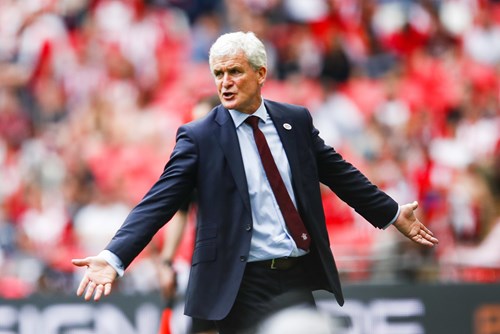This week is Mental Health Awareness Week, where the mental wellbeing of us all is put into focus, and we look at how we can help each other. Professional football isn’t immune from mental challenges either, with many players and managers over the years admitting to struggling to deal with certain aspects of their career either on or off the pitch. Below, we’ve put together some advice, personal stories and an inside look into what the game is doing to help players and staff, courtesy of some of the leading names in management…
Gareth Southgate, England manager
“I’ve used and worked with sport psychologists as a player and as a coach, so I recognise the value of it. Within football the role hasn’t necessarily been really defined, whereas in other sports it’s a lot clearer. The likes of tennis and golf have been far more open to the use of psychologists.
“If you ask any sports person or any coach what’s the difference at the highest level it’s the mental side of the game, so why wouldn’t we try and train that, and why wouldn’t we try and work to improve that?”

Nigel Pearson, Watford manager
“It’s been a taboo subject for a long time and I think sometimes coming out and admitting that you’ve got problems has been perceived as a weakness. I think that’s been a real stumbling block; it blocks people from even approaching the subject. It’s a very real problem in modern society and has been for a long time, but it’s just not been openly accepted.
“I think there has to be a sensitivity to understanding what individuals are going through. Confidentiality is a huge aspect of helping people to start helping themselves, but one of the most difficult things is to actually start the conversation. The most important aspect is that there is help available for people now.”

Mark Hughes, former Stoke City and Wales manager
“There’s a lot of good people around football clubs nowadays, from a medical and psychology point of view, and certainly at the top level there is an understanding that the pressures are huge for players, managers and coaches, so there is a need there which has to be satisfied.
“It’s a huge role being in management, but being in around it as well and seeing how it affects people can sometimes highlight your own situation. So having the knowledge and reassurance that there is help there and you know which avenues to go down to receive that is reassuring in itself.”

Mark Warburton, QPR manager
“I think you have to understand how to deal with adversity. As a young player, for example, how do you deal with criticism? Do you take it as constructive criticism or do you immediately get the hump and storm off? The City [Warburton was a trader in City of London before entering the world of football management] prepared me perfectly for that because you can have a great month and lose everything on the last day, that’s the nature of it and it could be out of your control.
“It could be an event like COVID-19 which has a really negative impact for you, but you learn very quickly that you cannot control what has gone by. You can’t change what happened yesterday, but you can do ‘this’. It was very much a glass half full mentality, so taking that into football was really beneficial. You can’t change a result, so it’s very much about looking forward and trying to offer solutions.”

















